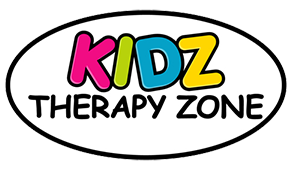
Vestibular Sensory System
Your vestibular system tells you where your head and body is in relation to gravity. It tells your brain if you are moving or standing still. It also provides your brain information about what direction and how fast you are moving. The vestibular system is a foundational sensory system because it provides context for many other types of sensation (e.g., sight, touch, hearing). It also affects your balance responses, coordination, attention, behavior, emotions, vision, muscle tone, and language.

Proprioceptive Sensory System
Your proprioceptive system gets information from your muscles, joints, and other connective tissues to tell your brain how your body is positioned and where your arms and legs are in space. This is a foundational sensory system because it provides the information needed for your body awareness, the amount of force you put behind your movements, your stability when sitting and moving, controlling your body’s movements, and performing tasks in various environments.

Tactile Sensory System
Your tactile system tells your brain about things you touch or that touch you. It provides information about the size, shape, and texture of things. This is another foundational sensory system because it gives your body context about things in your environment. It contributes to your body concept (e.g., knowing that your hand is your hand), coordination, attention, performance of tasks in various environments, and identification of things in your environment.
